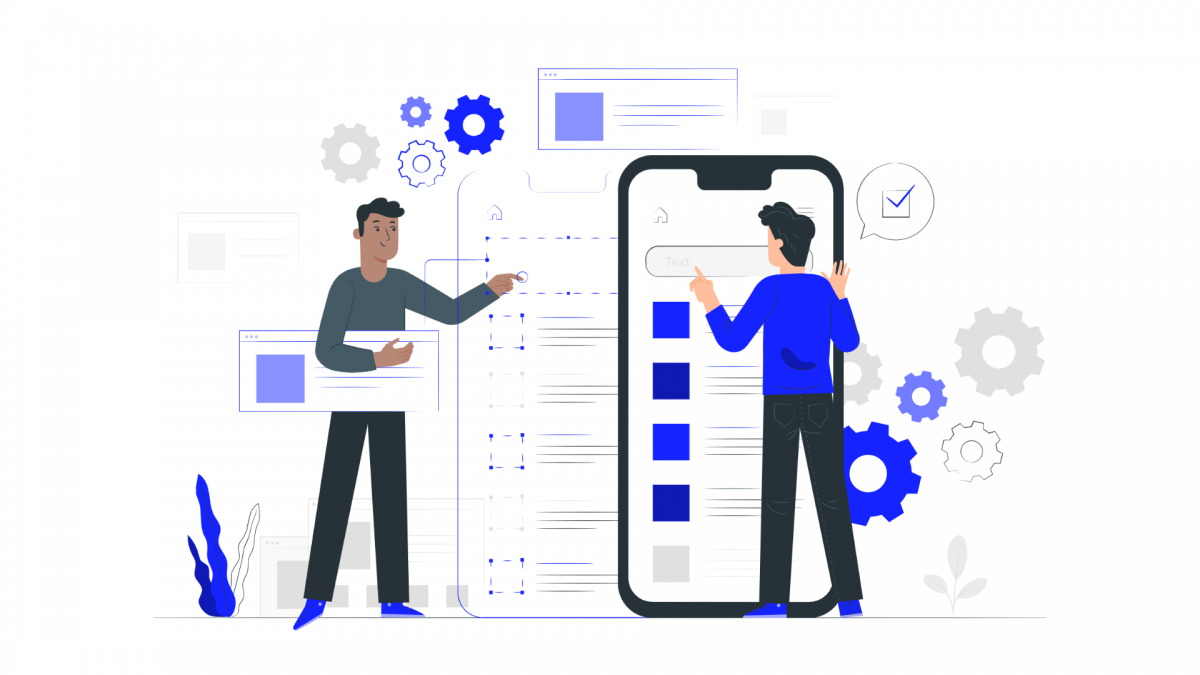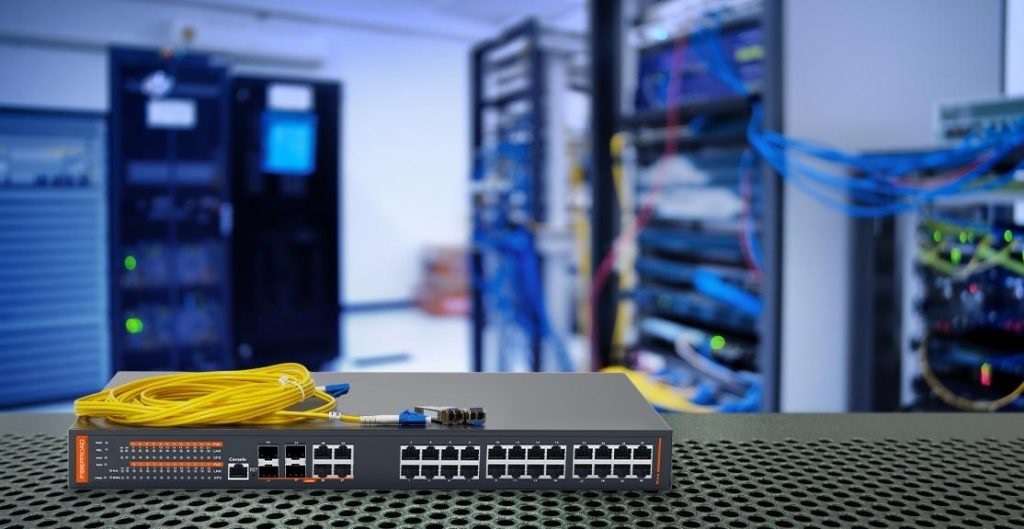Mobile app development has emerged as a crucial component in modern healthcare, revolutionizing how patients access care, interact with healthcare providers, and manage their health. With the widespread adoption of smartphones and tablets, mobile apps have become indispensable tools for delivering personalized health interventions, empowering patients with real-time access to medical information, and facilitating remote monitoring and telehealth services. As the digital transformation of healthcare continues to accelerate, mobile app development plays a pivotal role in driving innovation, enhancing patient outcomes, and shaping the future of healthcare delivery.
The rise of mobile health apps: Transforming patient care
The rise of mobile health apps represents a transformative shift in patient care, with healthcare providers and patients embracing these digital tools to enhance access, convenience, and outcomes. Healthcare providers increasingly recognize mobile health apps’ potential to improve patient engagement, empower self-management, and facilitate remote monitoring. These apps enable healthcare professionals to extend care beyond traditional clinical settings, delivering personalized interventions, educational resources, and support directly to patients’ smartphones or tablets.
The diversity of healthcare apps available reflects the breadth of needs and preferences within the patient population, spanning various aspects of health and wellness. From chronic disease management apps that help patients monitor vital signs, track symptoms, and adhere to treatment plans to mental health apps offering mindfulness exercises, cognitive behavioral therapy, and crisis support, mobile health apps cater to various healthcare needs. Additionally, fitness-tracking apps empower individuals to set health goals, track physical activity, monitor nutrition, and receive personalized coaching to support healthy lifestyle behaviors.
Apps like MyFitnessPal and Fitbit have revolutionized fitness tracking, empowering users to monitor their activity levels, set achievable goals, and make informed decisions about their health behaviors. Similarly, chronic disease management apps like Livongo for diabetes and Propeller Health for asthma have significantly improved patient outcomes through personalized coaching, medication adherence reminders, and real-time feedback on health metrics. The increasing adoption of mobile health apps is transforming patient care by putting the power of health management directly into patients’ hands, promoting proactive self-care, and fostering collaborative partnerships between patients and healthcare providers.
Improving accessibility and convenience
Mobile apps are pivotal in improving accessibility to healthcare services, particularly for remote and underserved populations, by overcoming geographical barriers and expanding access to care. Mobile apps offer a lifeline for individuals living in rural or remote areas with limited access to healthcare facilities by providing virtual consultations, remote monitoring, and telehealth services. Patients can connect with healthcare providers from the comfort of their homes, eliminating the need for lengthy travel or time-consuming visits to traditional clinics.
Furthermore, mobile health apps’ convenience revolutionizes how patients engage with healthcare services by putting essential resources and tools at their fingertips. Patients can use mobile apps to schedule appointments, access medical records, view test results, and receive medication reminders anytime, anywhere, empowering them to take control of their health management. Whether it’s managing chronic conditions, tracking fitness goals, or seeking mental health support, mobile apps offer personalized solutions that fit seamlessly into patients’ busy lifestyles.
24/7 access to healthcare information and services through mobile apps provides numerous benefits, including improved patient engagement, enhanced care coordination, and timely interventions. Patients can access relevant health information, educational resources, and self-care tools whenever needed, enabling them to make informed decisions about their health and well-being. Moreover, the availability of round-the-clock support and virtual care options ensures continuity of care, even outside of traditional clinic hours, reducing the likelihood of treatment delays and preventing unnecessary emergency room visits.
Enhancing patient engagement and adherence
Mobile apps have become indispensable tools in healthcare, offering many interactive features that significantly enhance patient engagement and adherence to treatment plans. One key feature is medication reminders, which utilize push notifications or alarms to prompt patients to take their medications at the prescribed times. These reminders help patients stay on track with their treatment regimen and serve as a tangible reminder of the importance of medication adherence for managing chronic conditions and achieving optimal health outcomes. Health tracking functionalities within mobile apps enable patients to monitor various aspects of their health, including symptoms, vital signs, and medication usage.
Moreover, personalized health tips and educational content within mobile apps are crucial in engaging patients and encouraging adherence to treatment plans. These features deliver relevant and timely information tailored to the individual’s health goals, preferences, and conditions, helping patients better understand their health status and empowering them to make healthier lifestyle choices. For example, apps like Ada Health provide personalized health assessments and symptom-tracking tools, offering users insights into potential health concerns and recommendations for the next steps.
Streamlining healthcare services and administration
Mobile apps play a crucial role in streamlining healthcare services and administrative tasks by providing convenient and efficient solutions for healthcare providers and patients. One key feature is the integration of electronic health records (EHR), which allows healthcare providers to access patient records, review medical history, and update treatment plans directly from their mobile devices. This integration eliminates the need for paper-based records and manual data entry, saving time and reducing the risk of errors associated with traditional record-keeping methods.
Furthermore, mobile apps facilitate seamless billing and payment processes by offering secure payment gateways and digital invoicing functionalities. Patients can conveniently view and pay their bills, submit insurance information, and manage payment plans directly through the app, reducing administrative burdens and accelerating the revenue cycle for healthcare providers. Appointment management features within mobile apps enable patients to schedule, reschedule, or cancel appointments, receive appointment reminders, and check in electronically, streamlining the appointment scheduling process and reducing no-show rates.
Leveraging data analytics for personalized care
Data analytics in mobile health apps unlocks the potential for personalized care by harnessing a wealth of patient data to tailor recommendations and interventions. These apps gather diverse data sets, including activity levels, vital signs, symptoms, and medical history. By analyzing this information, apps can generate insights into individual health profiles, identifying trends, correlations, and anomalies that inform personalized care strategies.
Apps collect and analyze patient data through various means, including user input, integration of wearable devices and sensors, and interoperability with electronic health records. Advanced analytics techniques such as machine learning and AI are pivotal in processing and interpreting this data. Machine learning algorithms can recognize patterns, predict outcomes, and generate personalized recommendations based on individual health profiles, enabling apps to deliver targeted interventions that address specific health needs and goals.
Machine learning and AI enhance healthcare apps’ predictive capabilities by continuously learning from new data inputs and refining their algorithms over time. These technologies can predict health outcomes, identify at-risk populations, and recommend preventive measures to mitigate health risks. By leveraging machine learning and AI, mobile health apps can evolve into powerful tools for personalized care, providing proactive health management and tailored interventions that optimize individual well-being and outcomes.
Ensuring data security and privacy
Data security and privacy are paramount in healthcare mobile apps due to the sensitive nature of patient information involved. Breaches can lead to severe consequences, including identity theft, financial fraud, and compromised medical care. Robust security measures are essential to safeguard patient data from unauthorized access, breaches, and misuse.
Custom healthcare software solutions include implementing encryption techniques to secure data both in transit and at rest, utilizing multi-factor authentication to control access to sensitive information, regularly updating software and systems to patch vulnerabilities, and conducting thorough security assessments and audits to identify and address potential risks.
Compliance with healthcare regulations such as the Health Insurance Portability and Accountability Act (HIPAA) is mandatory for healthcare mobile apps. HIPAA sets stringent standards for protecting patients’ health information, requiring measures such as access controls, audit trails, and risk assessments to safeguard data privacy and security. Adhering to HIPAA guidelines ensures patient information is handled responsibly and ethically, instilling trust and confidence in the app’s users.
Future trends in healthcare mobile app development
Custom healthcare software development feature several emerging trends that shape the future landscape. Wearable integrations are anticipated to become increasingly prevalent, allowing for seamless tracking of health metrics and real-time monitoring of vital signs. Moreover, AI-powered health assistants are expected to gain traction, offering personalized health insights, medication reminders, and even virtual consultations. Additionally, augmented reality (AR) holds promise for medical training, enabling immersive simulations and interactive learning experiences for healthcare professionals.
Asahi Technologies stands at the forefront of these evolving trends, spearheading innovative solutions for the healthcare industry. With a keen focus on leveraging cutting-edge technologies, this company integrates wearable devices with mobile apps to empower users with actionable health data and insights. Furthermore, the company pioneers the development of AI-driven health assistants, employing advanced algorithms to deliver personalized care and patient support. Additionally, Asahi Technologies pioneers the adoption of augmented reality in medical training, creating immersive learning environments that enhance knowledge retention and skill acquisition among healthcare professionals.
Conclusion
Mobile app development is pivotal in transforming modern healthcare and elevating patient outcomes. With the integration of cutting-edge technologies such as wearables, AI-powered assistants, and augmented reality, mobile apps are revolutionizing how healthcare is delivered and experienced. By providing personalized insights, facilitating remote monitoring, and enhancing medical training, these apps empower patients to take control of their health while enabling healthcare professionals to deliver more effective, efficient, and patient-centered care. As mobile app development continues to evolve, its role in shaping the future of healthcare remains indispensable, driving innovation, improving access to care, and ultimately, enhancing the well-being of individuals worldwide.













Comments